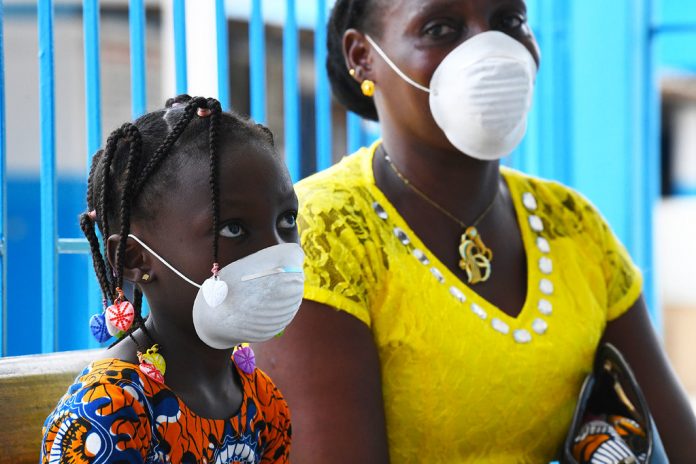Africa has been relatively unaffected by the coronavirus pandemic and the number of infections has been declining over the past two months. “Since July 20, the region has seen a steady decline in new cases of Covid-19,” says a World Health Organization (WHO) press release. Since February 14, 2020, when the first case of Covid-19 was diagnosed in Egypt, more than 1.4 million people have been infected on a continent where no country has been spared.
“Africa has not experienced an exponential spread of (Covid-19) as many initially feared,” said Matshidiso Moeti, the WHO Regional Director for Africa. Deaths attributed to Covid-19 have also remained low. The disease has caused the deaths of more than 35,000 people across the continent. A figure similar to the number of deaths in Italy alone. Several hypotheses have been put forward by the UN agency to explain the singular profile of the pandemic in Africa.
The measures taken by states to restrict the movement of populations, the demographic profile, and the lifestyle of Africans seem to have contributed to a “different” evolution of the epidemic.
Rapid and “drastic” measures
Matshidiso Moeti recalled at a press conference on September 24, 2020, that the speed of the countries’ response to contain the epidemic had played a major role. As early as March 2020, the States “took very early very important decisions and imposed drastic measures” to limit the displacement of populations and gatherings. The regional director emphasizes that they are all the more commendable as they have a heavy socio-economic impact. The responsiveness of the countries is combined with other factors.
A more “isolated” continent
With the exception of a few countries such as South Africa and North Africa, “Africa is less connected internationally”. The continent has thus finally found itself less exposed. In addition, mobility within the States is limited by the level of development of transport infrastructure and equipment. “This makes a difference in terms of the intensity with which the virus will spread in a country. These are factors that need to be taken into account,” said Dr. Moeti.
A young population
“The pandemic has mainly manifested itself in a younger age group and has been more pronounced in a few countries,” the WHO points out. “The structure of the population makes a big difference,” Dr. Moeti insists. In most African countries, about 3% of the population is over 65 years of age”.
The head of the WHO Africa office explains that the countries with the highest mortality rates are those where the age pyramid has other characteristics. This is the case of Algeria, where the over 65s represent 10% of the population, or South Africa where this figure is “around 5%”.
When young people are infected, they become less seriously ill or die less from the disease. According to the WHO, “about 91% of the cases of Covid-19 infection in sub-Saharan Africa involve people under 60 years of age, and more than 80% of the cases are asymptomatic”.
Another way of life
Drawing a parallel on the situation of the elderly in Africa and the West, Dr. Moeti noted that they generally live with their loved ones in African societies, unlike in Western countries where they are grouped together in retirement homes. Places that have become epidemic outbreaks.
Another protection linked to the African way of life, the virus “does not spread very well outside and Africa has a large population that is rural and spends a lot of time outside,” said Francisca Mutapi, professor of global health, infection, and immunity at the University of Edinburgh (UK) at the WHO press conference.
If hypotheses tend to be confirmed, the researchers are continuing their investigations to better understand the dynamics of Covid-19 in Africa. “We are learning a little more every day,” says Dr. Moeti.
Source: France Info

